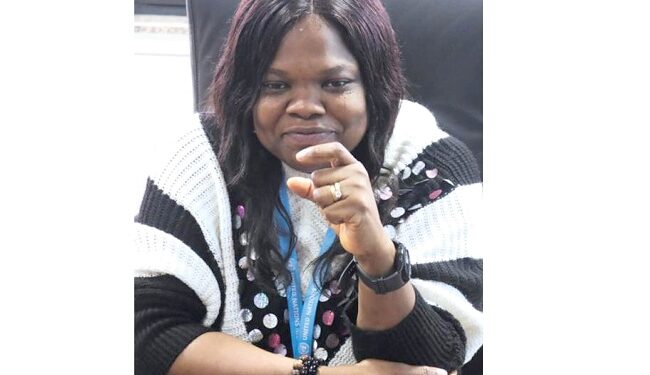Dr Agatha Kolawole is the national project coordinator for the ACCEL AFRICA, which seeks to ensure African children’s right to quality education in local communities, most especially, in the cocoa and artisanal gold mining ones. In this interview by MODUPE GEORGE, she speaks about the educational activities of the organisation in Nigeria, fight against child labour and why government should invest more in education.
Tell us about the ACCEL Africa project in Nigeria?

ACCEL Africa is the acronym for ‘Accelerating Action for the Elimination of Child Labor in Supply Chain in Africa.’ The ACCEL Africa project, being funded by the Netherlands government, is out to increase and sustain the campaign against the exploitation of children through a multifaceted approach which includes the provision of back-to-school kits, re-absorption into the school system, livelihood support for identified vulnerable children and adult beneficiaries. So far, the project had awarded grants to 13 Nigeria postgraduate students to conduct studies relating to the elimination of child labour in the cocoa and Artisanal Gold Mining (ASGM) sector. We believe that child labour does not only deprive children of their childhood, but majorly their education as well as their health and future prospects. It also undermines the country’s social and economic development. The project has equally provided education and training opportunities for over 1,800 children and young people and has raised awareness on the impact of child labour on education and the importance of promoting decent work for young people in Nigeria.
How exactly has ACCEL Africa been supporting children’s rights through education in Nigeria?
Last year, we conducted training in collaboration with the University of Ibadan for teachers and other stakeholders in the cocoa and artisanal mining sectors. The methodology is based on arts – drama, creative writing, music and the visual arts – and on the media. We were able to do this through the SCREAM module. Last year, we brought teachers from these communities to be trained because we needed them to reach out to the vulnerable children who have been identified in the communities. The rationale behind this move is that we believe that the teachers are the ones working directly with the children. Through this effort, we now have over 60 SCREAM clubs in schools where children are engaged by the teachers. Another thing that we also did was to engage the community officers who interact with the communities, whom the children can also reach out to with their messages. Our project is being implemented in three states and 12 communities; one in Osun State, four in Niger State and seven in Ondo State.
What is the SCREAM concept all about?
SCREAM is an acronym of Supporting Children’s Right through Education, the Art and the Media. It is an International Labour Organisation educational module delivered by educators using an education pack which is used to promote a children’s educational participation. The methodology is based on the arts – drama, creative writing, music and the visual arts – and on the media. Through the arts, young people are empowered to convey their message to the wider community. SCREAM also channels the creative energies of children and youth in positive and constructive ways and encourages “peer-to-peer” education, with young people reaching out to other young people. The SCREAM module teaches children their rights and it also helps them to express themselves through painted artworks, dramas and songs as well as send out messages against child labour.
How do you intend to get the SCREAM module into the entire educational system?
In the bid to ensure sustainability and the use of the SCREAM module in our various institutions, we further engaged the University of Ibadan to conduct the second training for technical officers who are the influencers in the education sector in order to ensure the adaptation and wide usage of the module in the educational systems, rehabilitation homes as well as by street children, among others. These people are the high level technical officials from the Ministry of Education, Nigerian Union of Teachers (NUT), Ministry of Labour, Civil Society Organisations (CSOs) and NGOs. We expected them to move on with advocacy after the training and ensure the usage of the module in their various spheres. For instance, the Lagos State Ministry of Education, having seen the resourcefulness of the module in the course of the training, as all necessary ingredients of effective pedagogy had been injected into the training sessions, declared its eagerness to mainstream the module into its school curriculum. So, they would be working with the University of Ibadan to ensure that it is done. Likewise, the University of Ibadan, whose team of experts adapted and developed the module, is already looking into mainstreaming it into its General Studies. In the long run, the students will automatically become our advocates. Also, we are working with the Nigerian Educational Research and Development Council (NERDC) on how we can mainstream the module into the school curriculums nationally for both the primary and secondary schools.
What have you done so far to ensure the educational rights of children in the country?
In terms of education, children have the right to attend school and to enjoy quality education, which includes an enabling environment for learning. During our visit to some of the communities in the states earlier mentioned, we discovered that most of the existing schools in these communities are not conducive enough for learning. You need to see the deplorable state of the Oke Agunla Primary School in Ondo State before our intervention; everything in the school was virtually gone. However, with ACCEL Africa’s intervention in the community, the school was renovated and this had in turn increased the participation of children . The headmaster of the school testified that the school had witnessed a tremendous increase in terms of enrolment. This is really a good testimony for us. Apart from the refurbishment, we provided the learners with back to school kits, while those that were at the risk of child labour were brought back to school and provided with school uniforms, bags, sandals, pair of socks, notebooks, textbooks, pen, pencils, among other things a child needs to enhance his or her learning. We also encouraged them to believe in their abilities and seeing the all-round newness around them in the school, they were really happy to return to school. We also taught the teachers to look at other methodologies of teaching the children in such a way that teaching and learning could be participatory. We have been able to at least enroll over 1,400 children back to school in these three states, Osun, Ondo and Niger. We also sensitised the parents by supporting their means of livelihood because we really want to sustain the children’s attendance in school.
It seems child labour is one of the major factors debarring children in the rural areas from attending school despite all the efforts by the government?
Yes, but it is vice versa. I used vice versa because as child labour is disallowing the children from accessing education, the absence of quality education on the other hand is also promoting child labour. For instance, so many parents withdrew their children from the Oke Agunla Community School because they felt that the dilapidated school building might collapse one day. In a bid to avoid this horror, they started taking their children with them to farm to work for them. Aside from this, the school had just three teachers, even up to the time we handed it over. However, the government promised to deploy more teachers to the place. This is what happens in most of the community schools. A good number of teachers deployed in rural areas do not report to the schools. In Niger State, we met a woman with a child in the mining area, when we asked why she did not allow her child to go to school; her excuse was that she could not see any difference between her child who was not attending school and those who did. She said: “All of them don’t understand Turanchi.” In as much as I am not equating speaking of English to being educationally capacitated, we know that in this side of the world, to attempt any examination you must be able to speak; read and write English. What is the essence of going to school without being able to read or write? The woman has not seen the distinction gotten through a quality education among the children in her community. There is a need for the government to equip the educational system; a lot of support is required to sustain it.
On the issue of deploying teachers to schools in the rural areas, are you saying that the government is not doing enough?
From the Oke Agunla experience, which is the most recent, it seems there is a gap from the government’s end over the issue of posting of teachers to rural areas. This is probably because the government feels there are not too many people there? The Oke Agunla School for instance has at least over 150 children; that is a generation that, if well cared for, could end up doing a lot for our country. What we were told in another community in Niger State was that the teachers posted to the schools in the communities were not coming. So, these are two different cases; these teachers are not coming to school because there is nobody to challenge them? We also need to look into our school monitoring exercise. Who exactly is monitoring the activities of schools in the communities?
By the virtue of the role you play in ACCEL Africa Project in Nigeria, you know what obtains in the field when it comes to the issue of out-of-school children. How best do you think the government can arrest the situation?.
The first thing is that the government should make education free and accessible; when I said free, I meant that it must be free from all levies. Sometimes in 2015 in Oyo State, I met a young boy hawking bananas and I noticed the total amount of bananas in his tray was not up to N500. When I asked him why he was not in school, he said the school authority sent him home to get the money for the school party and the mum said she did not have the money for a school party. So, to raise money for the boy’s school party, he would have to hawk bananas. This is just an example of levy issues in school. If a mother did not have N500 to pay a levy, what happens if the levy is up to N1500? There is also the need to increase the awareness on the importance of education in the rural communities. We should look at how we can review our teaching and learning methodologies to make school very interesting to the children. If these children enjoy school time anytime they come, I am sure they will always want to be in school. If there is really nothing to show the parents the quality education their children are getting in school, they will prefer to take them along to farm.
Source: NIGERIAN TRIBUNE




















Add Comment